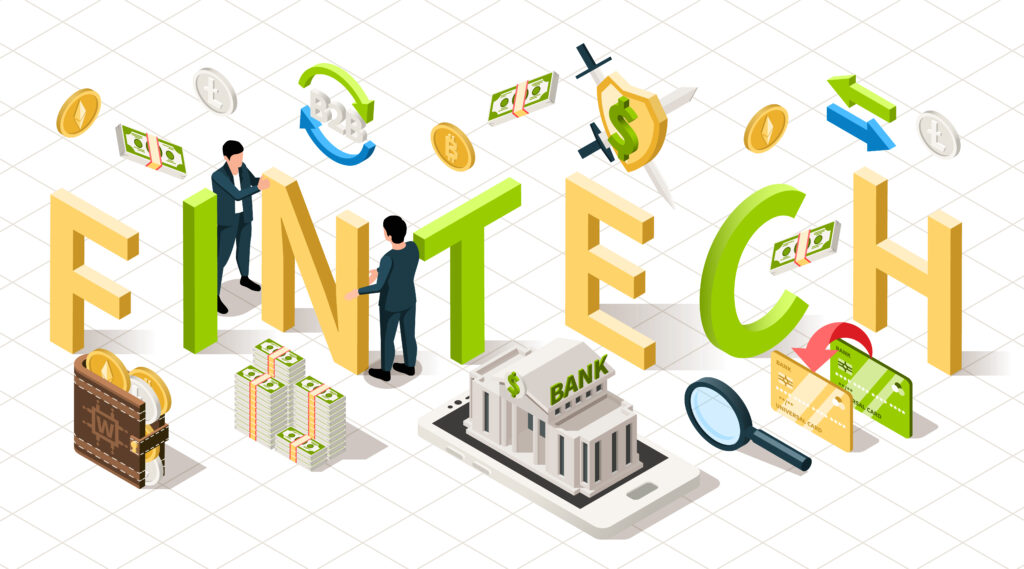Introduction
In the ever-evolving landscape of finance, technology is a driving force propelling the industry into new frontiers. Financial Technology, or FinTech, continues to revolutionize the way we manage, invest, and transact money. In this blog post, we’ll explore some of the emerging FinTech trends that are reshaping the financial sector and influencing the way we interact with money.

1. Decentralized Finance (DeFi): Unlocking Financial Inclusion
One of the most transformative trends in FinTech is the rise of Decentralized Finance (DeFi). Built on blockchain technology, DeFi aims to recreate traditional financial systems with decentralized, open-source platforms. These platforms offer services such as lending, borrowing, and trading without the need for traditional intermediaries like banks. DeFi not only promotes financial inclusion by providing services to the unbanked but also offers greater transparency and security.
2. Central Bank Digital Currencies (CBDCs): The Evolution of Digital Money
As central banks explore the digitization of national currencies, Central Bank Digital Currencies (CBDCs) have emerged as a significant FinTech trend. CBDCs represent a government-issued digital form of a country’s fiat currency, providing a secure and efficient means of transacting. These digital currencies aim to enhance financial stability, reduce transaction costs, and offer greater control over monetary policy.
3. NFTs (Non-Fungible Tokens): Transforming Digital Assets
Non-Fungible Tokens (NFTs) have taken the art and entertainment worlds by storm, but their impact extends into the financial realm. NFTs, built on blockchain, provide a unique and immutable way to represent ownership of digital and physical assets. FinTech is leveraging NFTs to tokenize real-world assets, enabling fractional ownership of real estate, fine art, and other high-value assets. This trend opens up new investment opportunities and enhances liquidity in traditionally illiquid markets.
4. Open Banking: Enhancing Financial Connectivity
Open Banking is a FinTech trend that emphasizes collaboration and connectivity within the financial ecosystem. It involves the sharing of financial data between different financial institutions securely. Through Application Programming Interfaces (APIs), open banking enables third-party developers to create innovative financial products and services. This trend fosters competition, improves customer experience, and encourages the development of personalized financial solutions.
5. AI-Powered Financial Services: Smart Finance
Artificial Intelligence (AI) is increasingly becoming integral to FinTech, enhancing automation, decision-making, and customer experiences. AI-powered chatbots and virtual assistants provide instant customer support, while machine learning algorithms analyze vast datasets to identify trends and make data-driven investment decisions. The marriage of AI and FinTech is ushering in an era of smart finance, optimizing processes and offering personalized financial solutions.
6. RegTech: Navigating Regulatory Complexity
Regulatory Technology, or RegTech, addresses the challenges of compliance and regulatory requirements in the financial industry. FinTech companies are leveraging advanced technologies, including AI and blockchain, to streamline regulatory processes, ensure compliance, and enhance risk management. This trend not only reduces the burden of compliance costs but also improves the overall efficiency and transparency of financial operations.
7. Embedded Finance: Finance Everywhere
Embedded Finance is a trend where financial services are seamlessly integrated into non-financial applications and platforms. From e-commerce platforms offering loans to ride-sharing apps providing insurance, embedded finance extends financial services beyond traditional banking channels. This trend simplifies transactions, enhances user experience, and makes financial services more accessible in various aspects of everyday life.
Conclusion
The FinTech landscape is evolving at a rapid pace, introducing transformative trends that promise to reshape the financial industry. From decentralized finance to the digitization of national currencies, these trends are not only revolutionizing the way we handle money but also fostering financial inclusion and innovation. As we navigate the future of finance, embracing and understanding these emerging FinTech trends will be key to staying at the forefront of this dynamic and ever-changing industry.


